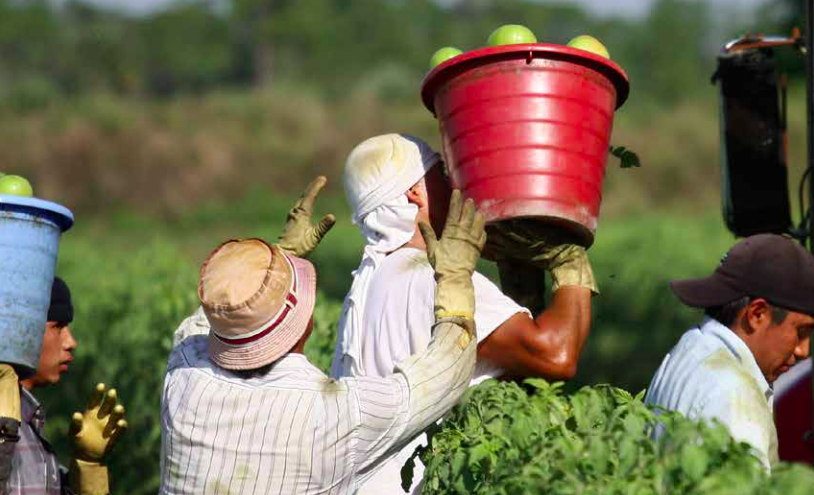Fair Foods Standards Council First Annual Report

Farmworkers in the tomato fields of Florida are experiencing new dignity, equality, and participation at the workplace through the CIW’s Fair Food Program. The third-party program monitor, the Fair Food Standards Council, assists in educating workers about the program’s human rights based code of conduct, investigates worker complaints, audits growers, and penalizes employers who refuse to comply with the code. Entering its third year of operation, the Council has issued its inaugural “State of the Program” report.
Through numbers and anecdotes, the report chronicles a remarkable story of change in the Florida tomato fields. In the two years the Council has operated as monitor of the program:
- Workers have brought forth 304 complaints;
- Council auditors have conducted nearly 60 comprehensive audits, visited 45 farm locations, and interviewed 4,000 workers to assess participating growers’ compliance with the Code of Conduct;
- The CIW has conducted 161 worker-to-worker education sessions, attended by well over 14,000 workers; and Participating Buyers have paid more than $11 million in Fair Food Premiums to improve workers’ wages.
Few workplace accountability systems can provide such objective evidence. Real accountability is a grinding, day-to-day, on-the-ground job. It requires relentless vigilance against exploitation, abuse, and humiliation in the workplace, a gradual, incremental process marked and measured by countless small victories. And it is achieved only by building an unbroken process of worker education, complaints, complaint investigations and resolutions, audits, corrective actions, and more audits that creates such a seamless environment of monitoring and enforcement that those who would humiliate or exploit their workers view the chance of getting caught as too certain, and the cost of getting caught too high.
This relentless groundwork then has led to a true multi-stakeholder initiative, one in which willing buyers, growers and workers have equal voices, and claims of progress are verifiable. Only then is the ideal of voluntary compliance even possible, and even then still at the cost of constant vigilance.
Thia is 21st century social responsibility — real, measurable, comprehensive, and driven by the people whose rights are at risk, not by those whose brands are in jeopardy.


